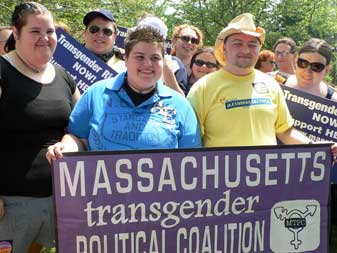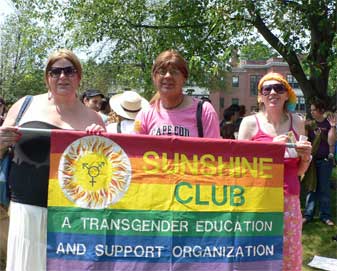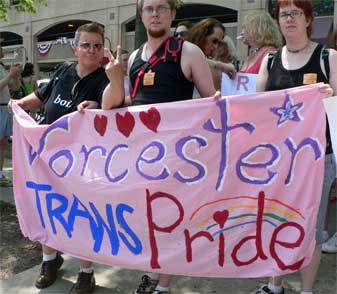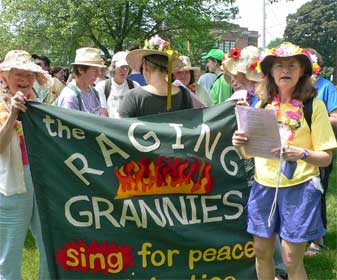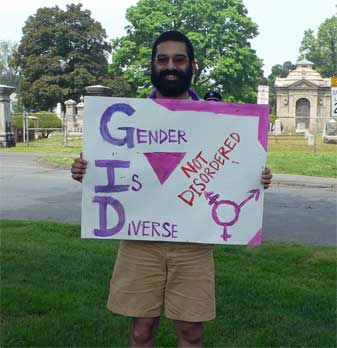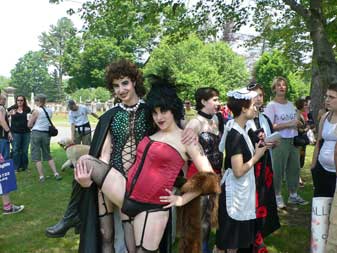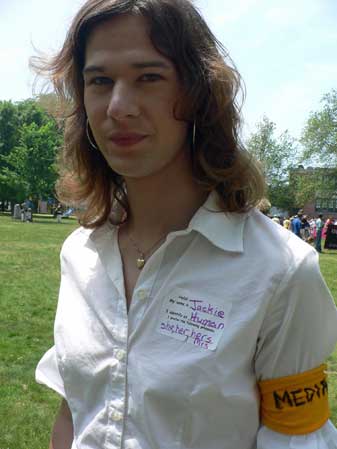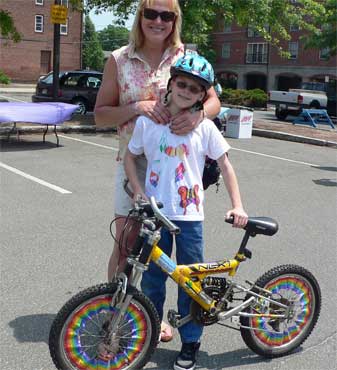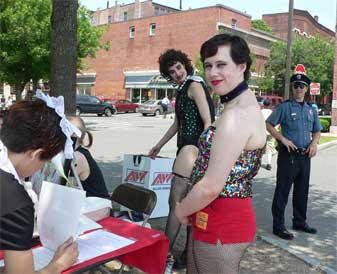Since 1997, independent poetry publisher Perugia Press has been supporting women at the beginning of their publishing career. Based here in Northampton, this proudly lesbian-owned press publishes one book a year through their poetry manuscript contest for a first or second book by a woman. Their books are handsomely designed and well-promoted. Below, reprinted with permission, are two poems from Melanie Braverman’s collection Red, which won their 2002 contest. Read more of her work here. Later this week, I’ll be reprinting a poem by another Perugia author, Janet Aalfs, from her chapbook Full Open (Orogeny Press, 1996).
Tell
Let’s talk
about sex, let’s talk about what
you like to do, or have
done to you, or do to
yourself while someone else
is watching, say
you like it in cars, while you’re
driving, maybe, his hands or her
mouth between your legs, or in
a basement, quiet except
for the sound of your
breathing, which is
getting
faster, you
can’t
help it, you like
the way the air fits your skin like another
skin, the air and her breath or just
her breath, you can’t tell
anymore but you like
it, you do, you’re a little
scared even though you’ve done
this with him before, you’ve known
him for years, or maybe you
just met, at a bar, in the library, on
the street in the fog, walking
the pier at two A.M., admiring the boats, the birds
quiet
mostly, the aqua the red
beam from the light
house pulsing so you feel
your blood the way
it wants you to feel
it, you see
that man walking just
ahead of you, the woman
whose arms are swinging at, you
swear, the same
cadence as your own, my god, she
has an amazing ass, it’s round or
small, whatever
kind of ass you like that’s
it, moving in front
of you like a beacon, like
an offering, forget
every bad thing that ever
happened to you, forget
danger, have faith
in your own safety now, speed
up and tell
that man hello, he wants
you to, maybe
you like it at home, in your own
bed or at his house, the way someone
else’s sheets feel like little
revelations across your back when she lifts
your shirt off and you
finally lie
down, after all
that kissing, your faces
rife with it, his
breath
and his rough
cheek or her
cheek smooth as sin there, her foreign
breath, or maybe she’s so
familiar her breath
has come
to smell
like your own, you’ve fallen into bed exhausted
with the one you love and still something
in you stirs, your body rises
now, as if sex with this
person has become
part of your dream
life, talk
about that, the mysterious, the absolute
way you fall in-
to or out
of yourself, toward
another, toward that orange
place where anything
can happen or will and know
you’ll
like it.
****
Fantasia
One week before Halloween the heterosexual
men dressed as women haunt our streets, handbags
slung across their thick wrists like those
IV poles the chronically infirm are forced
to walk around with looking
eager, hopeful, necks rigid
as spars to keep their impeccably
coiffed wigs from falling like sails askew in the harbor’s
wind, tastefully
accessorized because for a week at least they don’t
want to be bankers and miscellaneous middle-
management professionals, they want
a life in which the only meal they have to show up
for is lunch, and after that shopping, or a game
of bridge or, better yet, hearts, they want
to sit for a week in the front
windows of our cafes eating triangular-
cut sandwiches, tipping and expecting
attentive service from the gay
men and lesbians who serve them. This year the heterosexual
men dressed as women appear
to have faith that we will not think less
of them as women if they, by day, forego their stringent four-
inch heels, we are seeing an upsurge
of Keds in feminine colors: fuchsia, tomato, baby
blue, spring
green, with pointy
elongated toes. Perhaps they have been following
some cultural timeline so that now
in their imitation they have entered the moment of women’s
liberation, not
the sixties, these men would never burn
their bras, they believe
in foundation garments the way they must, in their real
lives, believe
in the appropriateness of smaller
government; no, for them it is the early
seventies, when even upper-middle-class
ladies took off their aprons and began the daily
scandal of wearing
pants, not pantsuits or slacks but the heartier fabrics once
intended only for husbands–denim, corduroy, serge, pants
that did not zip up the side, or like straight-
jackets close up the small
of the back, an era in which these men themselves might have left
their wives who are walking toward us now in Beech
Forest, their husbands slightly behind them with gingham
kerchiefs covering their voluminous artificial hair, picking
their way gingerly down the leaf-strewn path
toward my girlfriend and me, who have been speaking
in low voices about our love, how once we found
each other it seemed wrong-headed to turn away,
even when it meant hurting others, and how
unwomanly that was, and what it could mean
to never be forgiven.
